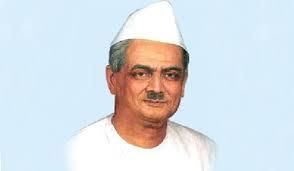For smooth Ad free experience
For smooth Ad free experience
Ganesh Vasudev Mavalankar, better known as Dadasaheb was from the state of Gujarat, being selected twice to the Lok Sabha. He was also selected as the first speaker of Lok Sabha and the president of Central legislative assembly. He was also closely associated with Mahatma Gandhi and Sardar Vallabhbhai Patel, being an activist during Indian independence.

Born on 27th November 1888
Ganesh Vasudev Mavalankar was born on the 27th of November, 1888. Belonging to a Marathi family in Baroda, he was from Ahmedabad, Gujarat. He had a simple upbringing, focused mainly on education like many of his counterparts during the time. His family hailed from the area of Mavalange in Sangameshwar in the Ratnagiri district of Bombay, now Mumbai. Growing up in Rajapur and completing his early education, Dadasaheb moved to Ahmedabad in 1902 and enrolled in the Gujarat College. Before enrolling for law studies he was also a Dakshina fellow at the institution. He completed his law studies with flying colors and started his practice in 1913.
It was during this time that he got interested in politics and met with people like Mahatma Gandhi and Sardar Vallabhbhai Patel. In 1913 he was appointed as the secretary of the Gujarat Education Society and also as the honorary secretary of Gujarat sabha. He played a key role in the freedom struggle of the country and had been jailed several time, spending up to 6 years behind bars. All of that started with the non-cooperation movement. In 1919, he was appointed to the Ahmedabad municipality for the first time. During 1922, Dadasaheb became the secretary of the Gujarat Provincial Congress Committee. In 1930, he was a part of the salt satyagraha or Salt march or Dandi march, spearheaded by Mahatma Gandhi. He had also briefly joined the Swaraj party.
After serving for two decades in the Ahmedabad constituency, Mr. Mavalankar was selected to the then Bombay legislative assembly in 1937. He continued to occupy the position of speaker of the assembly up until the independence of the country in 1947. He was elected to preside over the Central legislative assembly in 1946. On 17th November, 1947, he was elected to the office of speaker of Constituent assembly legislative.
On 26th November, 1949, after the adoption of the constitution of free India, Dadasaheb became the first speaker of the provisional parliament of India. He served in the position till the first Lok Sabha was established in 1952.
His time in office was noteworthy for the adoption of best practices and ethics for smooth functioning government machinery. He ensured that all the rules, conventions and procedures were in place to represent the parliament of the country. It comes as no surprise that Mr. Mavalankar was selected as the first speaker of Lok Sabha when it was formed in 15th May, 1952. At the time, he initiated many modifications to rules and procedures to match the situations as they developed. During his tenure, the question hour became an important aspect of parliamentary procedures. Short notice questions and half-hour discussions were also introduced by him. He also introduced the president’s address on a motion of thanks. His time in office was marked by accountability and efficiency.
After five decades of selfless contribution, Dadasaheb’s journey was cut short by a heart attack. He resigned office in January of 1956 and on 27th February he passed away after a cardiac arrest. Ganesh Vasudev Mavalankar is a person who has left a lasting impression on the parliament of India. He was and still is one of the gems that can be said to have laid the groundwork for a stronger India.
0
You might be interested in reading more from
